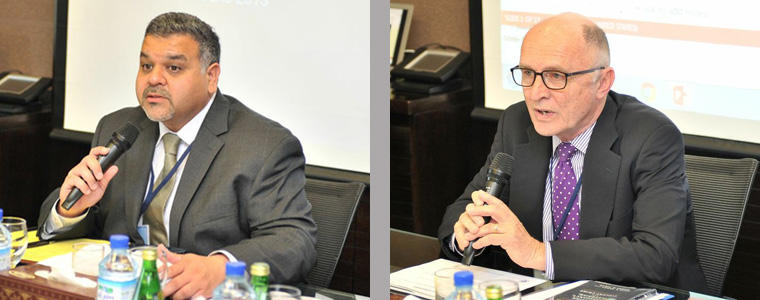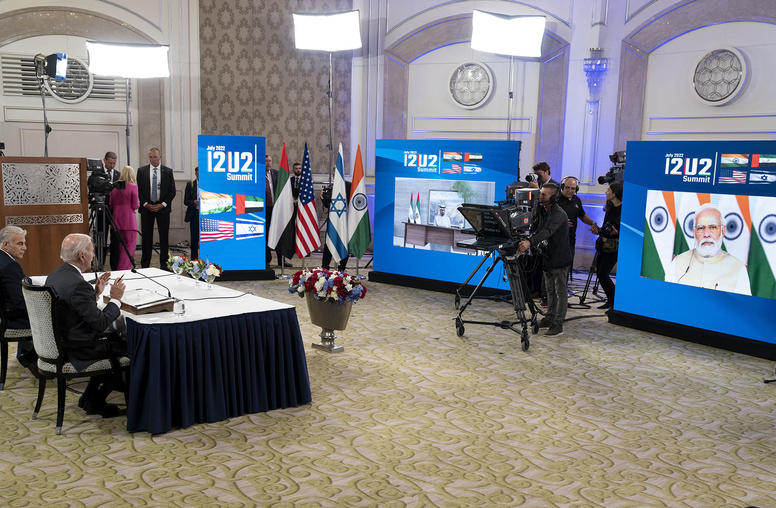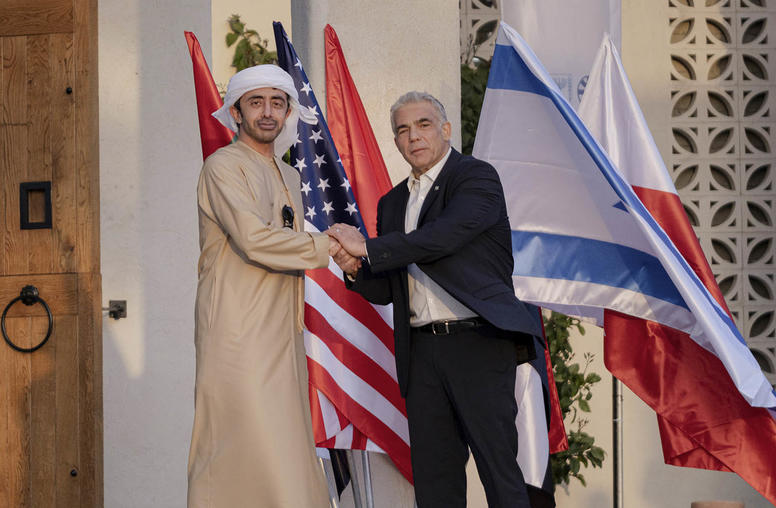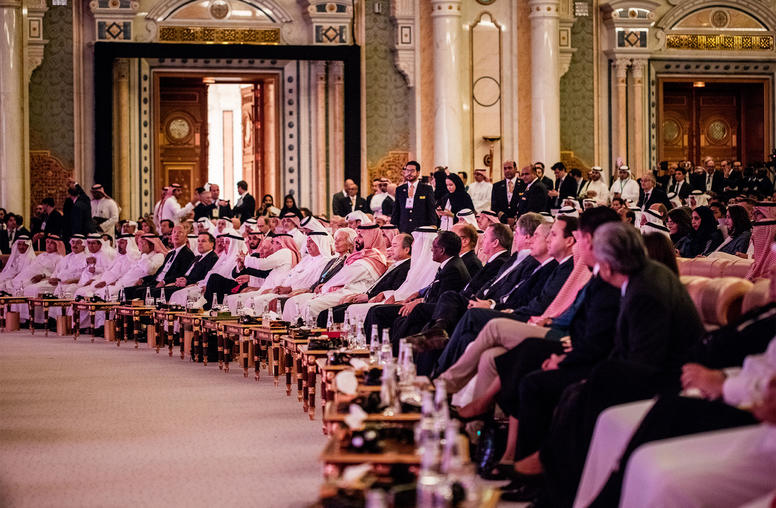USIP Academy instructors taught two courses on policing for countering violent extremism (CVE) at Hedayah, the International Center of Excellence for CVE, located in Abu Dhabi, United Arab Emirates from June 24 through 27.

Hedayah’s mission is to strengthen the capacity for countering violent extremism globally and to connect practitioners working on this critical, complex subject in order for them to learn new perspectives and lessons from environments outside of their own. These courses were the first in a series of education and training programs, representing a new partnership for USIP.
Thirty high-ranking police officers and police leaders traveled from a diverse group of countries – including Japan, Saudi Arabia, Pakistan, Afghanistan, Morocco, Jordan, Nigeria, Australia, the Netherlands, and the EU – to take the courses.
Participants had an opportunity to learn various cutting-edge approaches in interactive exercises and to network with colleagues facing similar challenges in their own societies, such as distrust between the government and the population, particularly groups who are most vulnerable to violent extremist recruitment.
The course facilitators included USIP’s Nadia Gerspacher, Bob Perito, and Qamar-ul Huda, along with three internationally renowned policing experts. The two courses were entitled “The Role of Police in Countering Violent Extremism” and “Community Policing for Countering Violent Extremism.” The courses offered knowledge, skills and practice on applying responsive and fair police practices for addressing violent extremist threats. Enhancing the ability of the police to protect and serve the community can result in increased legitimacy and public support for governments, thereby enhancing their ability to deal with extremist groups.
The courses targeted high-level participants because, as Gerspacher explained, “teaching police leadership about how to bolster their efforts to counter violent extremism smartly is key way for governments to learn best policing practices for CVE efforts.”
“The Role of Police” provided the participants an important opportunity to reflect upon how police, who often serve as the primary face of the government, can be utilized to address violent extremist threats and activity. In particular, this means that the police forces need to be available, helpful, fair, respectful, and competent.
Overall, police forces need to be smart. While combating violent extremism requires a number of tools beyond the punitive function of law enforcement, smart policing involves the use of effective law enforcement to counter violent extremism. Smart policing involves preventing and controlling violent extremism in three ways that are dependent upon supportive relationships between the police and the public: (1) taking preemptive action against violent extremists based upon information provided by the public; (2) investigating and arresting potential terrorists for commission of often petty crimes committed in the preparation for future attacks: and (3) protecting vulnerable people and places on the basis of assessments arrived at with public assistance of likely targets for attack.
In “Community Policing for CVE,” participants learned how to apply effective ideas and measures in their specific context. For example, police and community members can build a partnership based on mutual trust in order to better solve problems and crime. For police to grow such a partnership, it requires a commitment to transparency, cooperation with community representatives at every step, and a focus on understanding and solving local problems. Particularly for societies facing violent extremism, the community policing model allows for a more open, reliable and mutual flow of information between the public and the police, as well as effective security partnerships with community leaders and local organizations. At its best, community policing ensures that police become an integral part of the communities in which they work, and this sense of belonging makes them the primary receptors for community intelligence, therefore providing better security against both crime and violent extremism. USIP’s context-driven approach to course facilitation allowed for a fruitful discussion between participants from a variety of countries with varying levels of threat from violent extremists.
Participants relayed a high level of satisfaction with the course content and the instructors. One participant reported that, “The course exceeded my expectation due to the ‘participatory’ nature and style in which the sessions were conducted. Every moment was engaging and enriching.”
Speaking to the desired outcomes of the courses, instructor Nadia Gerspacher noted, “We anticipate that the course participants will return to their countries with more knowledge about international CVE efforts, and how their own police forces can bolster CVE efforts while being responsive to their country’s population at the same time. Police forces have often been used by governments for oppression and the courses’ content focused on how police forces can be more open, community-oriented, and effective. Reform in this manner will increase the trust between governments and their populations, thus taking away one of the key reasons used by violent extremists to justify their actions.”
Given this successful collaboration, USIP and Hedayah plan to hold future courses and high-level professionalization seminars on a variety of issues. These events will serve to enhance participants’ ability to bolster CVE efforts and to provide space for dialogue on a variety of CVE-related topics. These future collaborations will enhance U.S. and international efforts to deal with violent extremism and prevent vulnerable populations from recruitment into violent groups.



